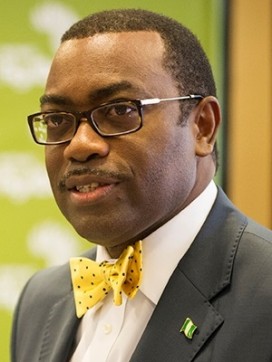 The African migrant crisis is in the global headlines and rightfully so. It is high time people were talking about this dire problem and searching for solutions.
The African migrant crisis is in the global headlines and rightfully so. It is high time people were talking about this dire problem and searching for solutions.
The European Union has announced its 10 point plan, focused on tackling human smugglers and with a changed approach to the migrant vessels that traffic tens of thousands heading for Europe every year, often with tragic consequences.
While these are crucial steps, African leaders should also work with the EU to make progress on another track entirely: solving the problem at its roots – making fundamental changes to the factors that contribute to these migrations. Because the problem starts here in Africa.
As Africans, we must begin by looking inward. First, what has brought us to where we are now? Second, how can we fix it?
Why are people willing to risk their lives to escape our continent? Africa’s poverty rates are still the highest in the world. We are facing widening economic and social inequalities that have resulted from rapid, yet non-inclusive growth. Despite impressive economic progress over the past several years – currently five of the world’s 10 fastest-growing economies are located here – the reality is that 44 per cent of Africans still live on less than $1.25 per day. Nothing is more important than putting an end to poverty and thereby creating a sense of hope here at home. Our economic success needs to be shared – with prosperity for all – creating a more equal, stable, and peaceful continent.
We have exceedingly high levels of unemployment, leading to social, political, and economic fragility, with 53 per cent of Africa’s nations described as fragile states. In addition to triggering migration, fragility also breeds terrorism. We need to tackle the fundamentals of joblessness and economic exclusion.
Every year, 30m youths enter the market. Jobs need to be created for them. We must urgently address the fact that the economic growth we have today is often jobless growth. It affects the few and excludes the many. Working with partners like the EU, Africa’s leaders and its key institutions – namely, the African Development Bank – can change that. We should collaborate with the EU to pioneer a strategic, continent-wide approach to job creation.
To enable the private sector to flourish we need to work with governments to lower the cost of doing business across Africa. We need to implement processes and systems that are transparent and business-friendly, attracting global and regional investment and retaining African entrepreneurs and the talented workers they will hire. Venture capital and other funds must be given the right kind of encouragement and assurances to direct their financing to Africa’s private sector.
To generate jobs at scale, we need to dedicate significant resources to providing incentives for financial intermediaries to lend more to small and medium-sized enterprises. SMEs form the bulk of our growing economies and helping them expand and prosper will result in millions of jobs.
We also must launch a major effort to address the skills mismatch in the labour market through greater focus on skills and vocational training, and entrepreneurship development.
And you can’t develop without women. Investing in women is not just the right thing to do, but also the smart thing to do. Women are the primary source for growth in local economies. Yet today, 64m more women than men are unemployed in Africa. Women need access to education, technology, jobs and financing. This must be understood and prioritized by governments and the development community.
Africa has 65 per cent of all the arable land left to feed the 9bn global population expected by 2050. Of all possible interventions, transforming the agriculture sector will have the largest impact on growth on the continent, given that 70-80 per cent of the labour force is engaged in the sector but locked into poverty.
We must provide innovative financing instruments and direct private equity funds toward agri-business investment, particularly in the form of micro-finance. By reviving rural economies and empowering them with tools to connect their goods to viable markets, we will unlock incredible opportunities for growth and shared prosperity, as we lift millions out of poverty.
We need to diversify the economies in African countries that are rich in natural resources, to shield them from over-exposure to volatilities in global markets (as we saw recently with falling oil prices). Focusing on unlocking agriculture’s potential will go a long way toward diversification and building “soil wealth” rather than relying on oil and mineral wealth.
We also need to improve management of those natural resources. Africa is not poor, but its people are poor because money disappears into the wrong pockets. Africa has $85tn in natural resources, but it loses $60bn a year in illicit outflows. Imagine what $60bn could do for our people’s healthcare and education each year. We need to work at all levels to enforce transparency and accountability rigorously. Africa’s resources should not belong to the few, but should be for the benefit of all.
People should have no reason to flee a continent as rich as ours. While the EU’s 10 point plan could contribute significantly to addressing the issue of illegal migration, we must complete the strategy by confronting the problem at its core, at its origin. This will require bold actions, profound changes and a strong partnership between Africa and the EU. Let’s work together to create jobs, opportunity, and hope on the continent. Let’s create reasons to stay.
Akinwumi Adesina is the outgoing Nigerian minister for agriculture. Adesina won the post of President of the African Development Bank the following day after publishing this citation which reflects parts of his vision for Africa.
Originally published on Financial Times blog.
Originally published on Financial Times blog.


No comments:
Post a Comment